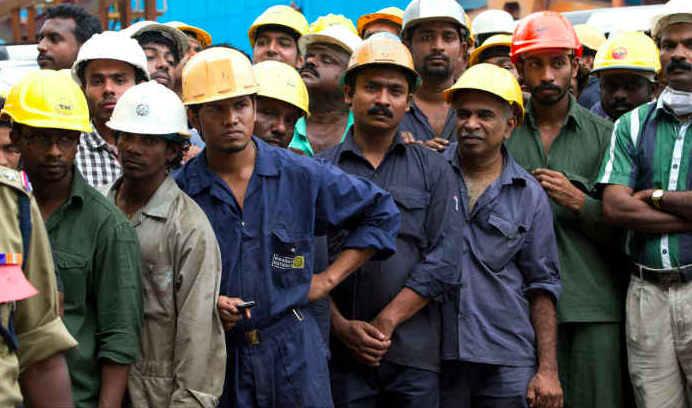NEW DELHI: – Increasing exports can lead to better jobs and higher wages in India, including more formal jobs for youth and women. Labor market policies can help different groups of workers acquire the right skills and ensure that the gains of increased exports are shared more broadly across society.
A new report, “Exports to Jobs: Boosting the Gains from Trade in South Asia”, presented today in New Delhi, shows that increasing exports would boost average wages. The biggest beneficiaries of the wage gains would be the high-skilled, urban, more experienced, and mainly male workers. For low-skilled workers, the shift would result in an increase in formal jobs.
The report, jointly produced by the World Bank and the International Labour Organization, breaks new ground in examining the impact of exports on local labor markets in South Asia. It uses an innovative approach, analyzing the effect on local employment and wages of changes in exports by combining disaggregated data from household-level or worker-level surveys with trade data from India and Sri Lanka. The approach builds on a new wave of research looking at how globalization might contribute to local jobs and wages, but, unlike previous studies, it focuses on exports.
“Our research shows that exports can improve the performance of local labor markets and that policies need to be put in place to increase exports in South Asia, while ensuring that the benefits of higher exports are shared more broadly,” said Gladys Lopez-Acevedo, World Bank Lead Economist and one of the report’s authors. “Addressing constraints that prevent people from moving and taking advantage of new job opportunities is important.”
The report provides options on how to expand and widely share the benefits of higher exports. Improving workers’ skills, getting women and youth into more jobs, and addressing distortions that make labor mobility costly are some of the recommended policy actions.
“Economists and policy makers need a better understanding of how exactly globalization affects both workers and national labour markets,” said Daniel Samaan, Senior Economist, ILO Research Department and one of the report’s authors. “Our research shows that more exports can create benefits for workers by raising wages and reducing informality, but we need stronger policies to ensure these benefits reach everyone in the labor market, and don’t leave any groups behind.”
India grew at a rate of 7.2 percent in 2017, at the same time reducing the number of people living in poverty. However, most Indians don’t have regular jobs in the formal economy and differences in wages across regions and in the quality of employment opportunities prevail. The increasing population also puts pressure on labor markets. In addition, trade has been falling, from 55.8 percent to 41.1 percent of Gross Domestic Product between 2012 and 2017. India’s exports are mainly capital-intensive goods such as chemicals and fabricated metals, meaning that the direct benefits for workers have been limited. With the right policies, India can ensure that greater export orientation can boost workers’ gains from trade and spread them more widely, so benefiting disadvantaged groups.



